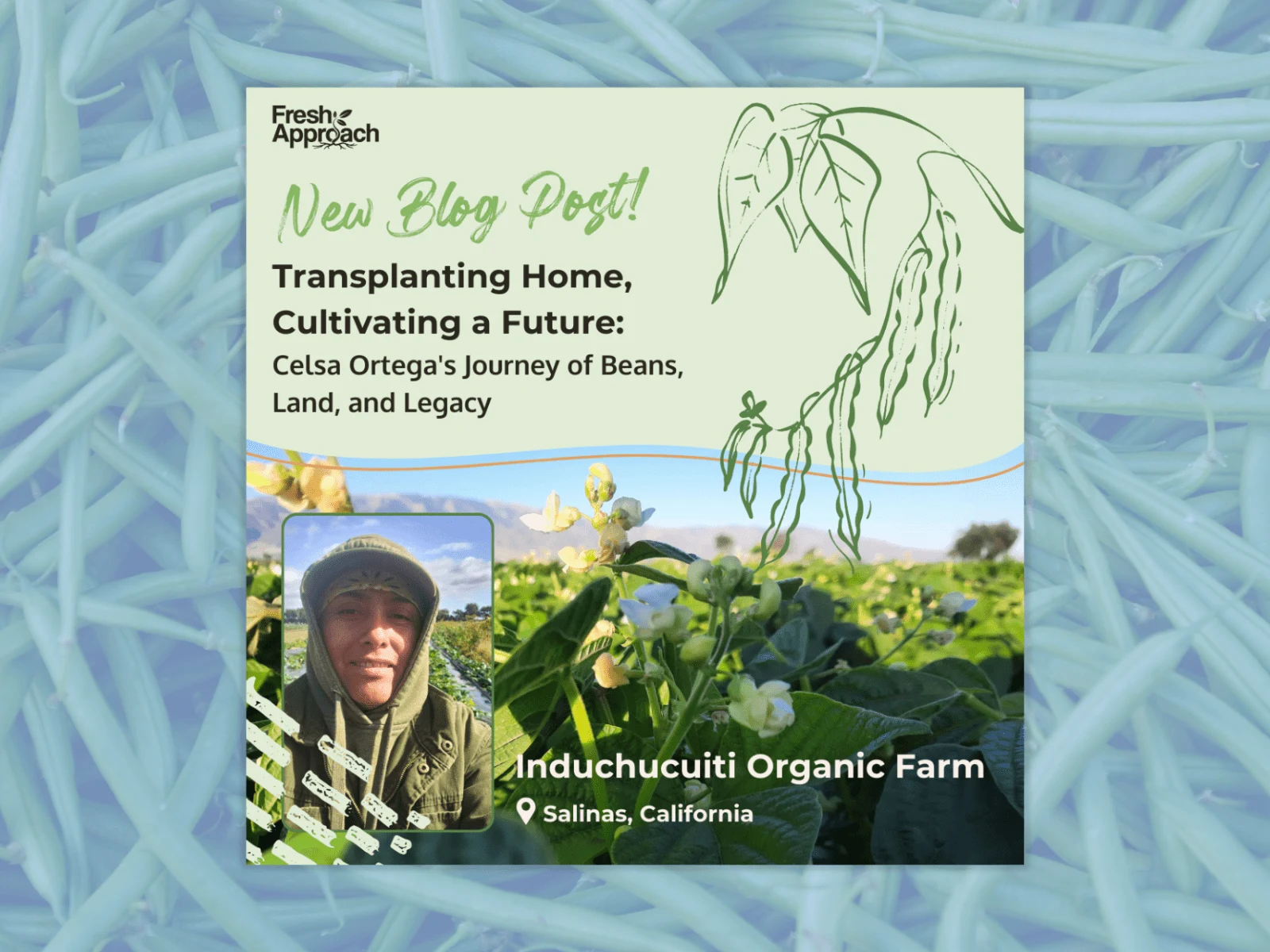🫛Transplanting Home, Cultivating a Future | Blog & Interview

Transplanting Home, Cultivating a Future: Celsa Ortega’s Story of Beans, Land, & Legacy
By Anna Clair Miller
When Celsa Ortega immigrated to the United States with her children in 2006, she found herself missing the smell of the earth she once tilled with her grandparents in their milpas—traditional, terraced farm plots—in the Sierra Madre mountains of Oaxaca. After finding work as a day laborer picking cilantro, she discovered that it was possible to cultivate a meaningful livelihood through agriculture in California, and that she could reconnect with nature once again.
Inspired by fellow farmers to become a business-owner herself, Celsa received support and organic training from the ALBA incubator program (Agriculture and Land-Based Training Association), and Induchucuiti Organic Farm was born.
“Induchucuiti is the language of my ancestors; my parents are the last ones who speak it. It means ‘water bean that is planted in the ground after the first rain’. It is the main food throughout the year and is preserved for the rest of the year, consumed in the form of green beans, fresh, and dried beans. It is native to my culture and is a high Mixtec dialect.”
Today, rows of bean plants, speckled with petite, multicolored blooms and burgeoning pods, reach towards the California sun at Salinas-based Induchucuiti Farm. Green beans—which are called ejotes from México to Honduras, derived from the Náhuatl word for beans, “exotl”—are the pride and joy of the 2.5 acre farm. They play a key role as a cover crop in the soil-honoring, regenerative approach to agriculture that forms the backbone of her farming ethos.
The name of Induchucuiti Farm is itself a testimony of the profound significance that the beans hold for Celsa, whose homeland in the southeastern Mexican state of Oaxaca is the most agriculturally and biologically diverse state in the entire country. While many other kinds of organic vegetables also thrive on the farm, Induchucuiti is a beloved namesake of her ancestral ejotes.
“My favorite vegetable is green beans for many reasons. They are tasty, healthy, and enrich the soil with organic material. I love their growth and development process, watching them grow until they fall over when they get too heavy. Also, the flowers look like colorful little roosters!”
Celsa stewards the needs of her farm by keeping the soil healthy and protecting its ecology, and the land reciprocates by providing financial independence, nourishing bounty for her family and community, and a way to share her cultural foodways with future generations. While she doesn’t yet have enough capital to purchase farm machinery, she is able to continue accessing resources she needs from organizations such as ALBA, who rent out equipment and also support her ongoing learning of organic best practices.
Despite the challenges of being a single mother and being a small business owner, Celsa perseveres.
“My work is not easy,” she acknowledges. “I cannot spend the time I want with my family because I have to take care of my crops…we even sacrifice our mental health to dedicate time to them.” Yet, her determination is evident as she transitions from selling wholesale to directly supplying schools and exploring farmer’s markets. “It’s special for me to work for schools,” Celsa says with pride. “I work for my son’s school and I’m excited for him to see that the food comes from my farm.”
Eighteen years after Celsa Ortega’s family first arrived in California, she stands proudly in her own fields that she sowed with her own hands: they brim with cherry tomatoes, three colors of ejotes, ten traditional varieties of chiles, cilantro, and so much more. And when she inhales, she no longer misses the smell of nature that she once yearned for—it surrounds her.
Looking forward, Celsa’s goals are clear: economic stability and wider community access to her crops. But her ultimate purpose goes beyond financial gain. “I want people to know that organic agriculture deserves respect,” she declares. “Farmers deserve respect.”
Like this project
Posted Aug 5, 2024
Blog post featuring an interview with the owner of a local, organic, woman-owned farm for a Bay Area food access and agricultural nonprofit organization.
Likes
0
Views
9





